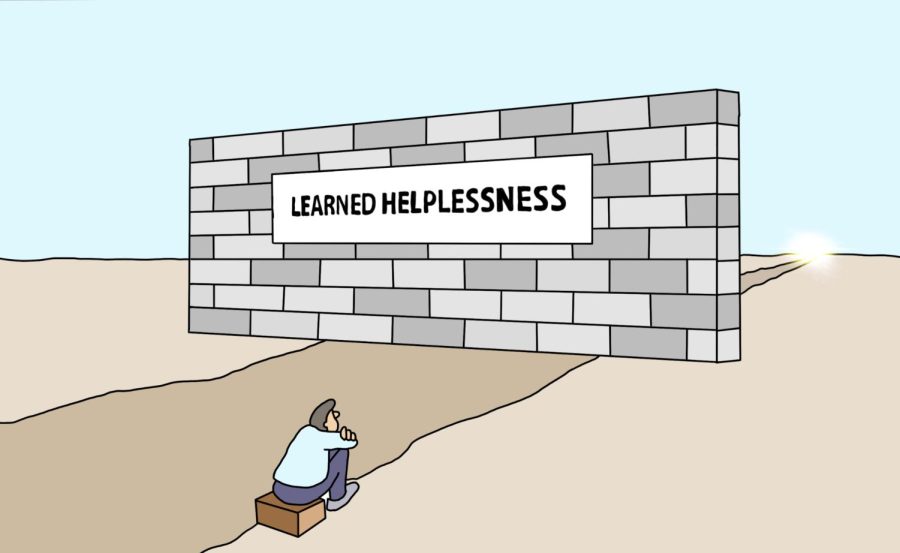The Silent Struggle: Students Experience Learned Helplessness
Continuous disappointment leaves students susceptible to developing learned helplessness, a psychological condition detrimental to students´ academic potential.
All students have experienced the extreme disappointment of studying doggedly just to receive unsatisfactory results. The frustration of this outcome often leaves students feeling as if they have no control over their situation. This cycle of exasperation and incapacity observed in students and adults alike can lead to the development of learned helplessness.
This silent struggle is all too common among students. They may find themselves unable to focus on their studies, take advantage of available resources or make use of the support offered by their teachers or parents. These feelings can be compounded by external factors such as poverty, lack of access to quality education or a difficult home life. When students feel like they have no control over their future, they may become apathetic.
The way the educational system is set up often contributes to teens feeling utterly incapable. This is because the system frequently uses standardized testing, which can be a one-size-fits-all strategy that ignores individual variations. Because of this, students frequently only receive rewards for performing well on these exams, which might make them feel powerless in other areas of their lives. Additionally, the educational system does not often provide students the chance to pursue their other passions or form deep bonds with their friends, which may leave them feeling unable to design the sort of life they desire for themselves. As a result, students may struggle to take control of their own futures and may get caught in a cycle of learned helplessness.
“Schools often adopt an atmosphere reliant on memorization and testing that instills a sense of powerlessness in students as they are only required to recall the material while not understanding it,” freshman Lily Trapp said.
Fortunately, schools can take several measures to lessen the frequency of this struggle. By giving students a sense of autonomy over their learning process, for instance, they could foster a welcoming learning atmosphere. When engaging with kids, teachers should also be patient and receptive to their opinions and concerns. Additionally, schools should offer struggling students extra help in the form of tutoring, mentorship and counseling services.
Students can also take steps to lessen this phemomenon. In addition to being willing to take chances and attempt new things, they should actively participate in their education. Recognizing that failure is an essential component of learning is crucial and working toward a development mindset are both necessary courses of action. Students should also ask for assistance and support when they need it from their professors and peers.
“I like to remind myself that my actions can always have an influence on the outcome of my situation, no matter how unlikely or unchangeable it may seem,” freshman Daniela Diaz said.
The main attribute students must adopt to ease this stress is a growth mindset. Students that have a growth mindset believe that they can develop their skills and subject knowledge. It is the opposite of a fixed mindset, which regards talent and intellect as unchangeable traits that cannot be modified. Students that adopt a growth mindset are more likely to take chances, be receptive to criticism, and work to get better.
“With a growth mindset, I know that I can always learn and improve and that I‘m not limited by my current abilities. I‘m excited to take on new challenges and to continue to grow and develop, both academically and personally,” freshman Eliem Salazar said.
Students and their schools should join forces in order to combat this issue, starting with identifying the warning signals and symptoms of learned helplessness, such as procrastination and a loss of motivation to make positive strides in one’s academic career.
We as a society should make sure that students have access to tools and methods that will keep them motivated, organized and focused. Instead of reinforcing emotions of weakness, let us collaborate to build an environment that promotes resilience and a development attitude. We must finally have a candid discussion on learned helplessness and the methods that might be employed to overcome it.
Your donation will support the student journalists of Coral Gables Senior High School. Your contribution will help us cover our annual website hosting costs.

Joseph Abrahantes is a junior in the International Baccalaureate program. Returning for his third year as a CavsConnect staff member, Abrahantes hopes...








